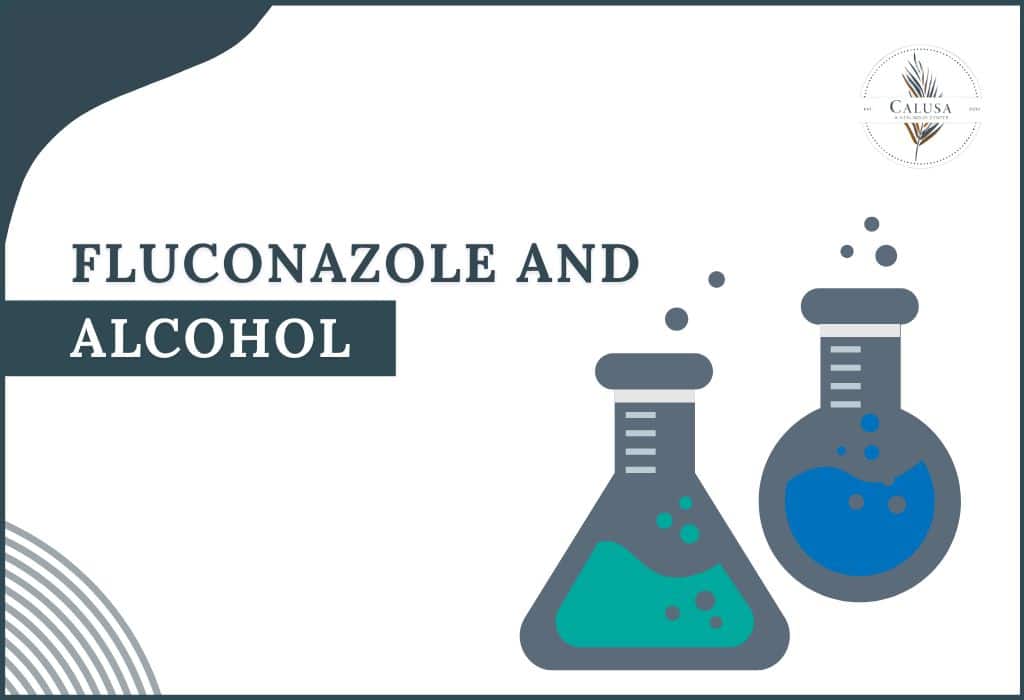Paxlovid has been in service to treat COVID-19 since December of 2021. Since that time, it has successfully saved thousands of high-risk patients out of the hospital and protected lives. This antiviral is a mixture of two medications, one that impedes the COVID-19 virus from repeating itself and joining new cells. The other upgrade the functionality of the first. Together, they compress the duration of the viral infection and mitigate symptoms to avoid the demand for a hospital stay. It is not advised to drink alcohol while on a course of Paxlovid. For people with an alcohol use disorder (AUD), this recommendation may be difficult to abide by.
Don’t Let Alcohol Hold You Back!
What is fluconazole?
Fluconazole is a common antifungal drug that doctors usually prescribe for the treatment of various types of fungal infections. It falls under the category of triazole antifungals, which we understand as drugs that slow down and stop any development of fungi.
It is used in the treatment of Candida-caused infections such as oral, throat, and esophageal yeast infections and also vaginal yeast infections. Several forms are available to treat different kinds of meningitis caused by fungi like this one, and it may be given to prevent fungal infections in patients with weakened immune systems including those undergoing chemotherapy or living with HIV/AIDS.
Common uses and conditions treated by fluconazole
Yeast infections
- In these areas: mouth, throat, esophagus
- Vaginal thrush
Fungal meningitis
- Chemotherapy patients
- HIV/AIDS individuals
Forms of administration
- Oral tablets or liquid
- Intravenous route for severe infections
Mechanism of Action for Fluconazole
The way fluconazole and alcohol works inside the body is by stopping a chemical called lanosterol 14-alpha-demethylase. Infection-fighting cells contain this enzyme, which turns lanosterol into ergosterol, a building block needed to maintain cell walls made out of fungus. The synthesis here is interrupted, preventing conversion thereby resulting in the inhibition of the membrane construction process that will lead to death cells eventually killing them thus inhibiting fungal growth.
Duration and metabolism of fluconazole
- Absorption: Rapidly absorbed from the gastrointestinal tract.
- Bioavailability: High, with over 90% reaching systemic circulation.
- Half-life: Approximately 30 hours in healthy individuals.
- Metabolism: Primarily metabolized by the liver.
- Excretion: Mostly excreted unchanged in urine, minor metabolites in feces.
- Duration of action: Effective concentration maintained for 24-48 hours after a single dose.
The high bioavailability and long half-life of fluconazole ensure that it remains effective for an extended period, maintaining therapeutic levels in the body for 24-48 hours after a single dose. This efficient absorption and prolonged action make fluconazole and alcohol a reliable option for treating various fungal infections.
Effects of Alcohol on Medication
Alcohol can generally interact with medications in several ways, such as altering their effectiveness, increasing side effects, and impacting metabolism. It can either enhance or diminish the intended effects of the medication, leading to potential health risks.
Specific Concerns with Mixing Alcohol and Fluconazole
- Increases side effects like nausea, vomiting, and dizziness.
- This puts additional strain on the liver, as both substances are metabolized by the liver.
- Potential for liver damage or other serious health issues.
- Advisable to avoid alcohol consumption while taking fluconazole to ensure efficacy and reduce the risk of adverse effects.
Risks and Considerations
Potential Side Effects of Combining Fluconazole and Alcohol
- Nausea and vomiting: Exacerbated common side effects.
- Dizziness and headache: Intensified symptoms when combined.
- Gastrointestinal discomfort: Increased severity when alcohol is consumed with fluconazole.
Increased Risk of Liver Damage
- Fluconazole and alcohol are both metabolized by the liver, increasing the workload and potential for liver strain.
- Regular consumption of alcohol while taking fluconazole can lead to liver inflammation or damage, particularly in individuals with pre-existing liver conditions.
- Monitoring liver function is important for those on fluconazole, especially if alcohol consumption cannot be avoided.
Guidelines for Safe Consumption
When taking fluconazole, it’s crucial to adhere to guidelines for safe consumption to ensure effective treatment and minimize risks. Here are essential recommendations.
- Avoid Alcohol: It’s recommended to refrain from alcohol entirely while taking fluconazole to avoid potential interactions and side effects.
- Timing and Dosage: If alcohol use cannot be bypassed, consult with a healthcare provider for specific guidance on timing and dosage adjustments.
- Medical Advice: Always follow medical advice and prescriptions strictly when combining medications with alcohol to prevent adverse reactions and ensure the effectiveness of treatment.
Common Misconceptions
Common misconceptions about fluconazole and alcohol interaction often stem from incomplete information or anecdotal experiences. Let’s clarify some of these misunderstandings:
- Alcohol Enhances Fluconazole’s Effectiveness: There is a misconception that consuming alcohol can enhance the effectiveness of fluconazole. In reality, alcohol can impair the absorption and metabolism of fluconazole, potentially reducing its therapeutic benefits.
- One Drink Won’t Hurt: Some people believe that a small amount of alcohol, such as one drink, is harmless when taking fluconazole. However, even moderate alcohol consumption can interfere with the medication’s efficacy and increase the risk of side effects.
- Fluconazole Makes Alcohol Safer: Another myth is that fluconazole can protect against the negative effects of alcohol consumption. This is not true. Fluconazole does not mitigate the harmful effects of alcohol on the liver or other organs.
- All Medications Interact Similarly: There’s a misconception that all medications interact with alcohol in the same way. However, the interaction between fluconazole and alcohol is unique and should be considered separately from other medications.
- It’s Safe After the Treatment Ends: Some individuals believe that once they stop taking fluconazole, they can immediately resume alcohol consumption without consequences. However, fluconazole can remain in the body for some time after the last dose, and its interaction with alcohol may persist during this period.
It’s essential to rely on accurate medical information and consult healthcare professionals for guidance on medication use, especially when combining medications with alcohol. Understanding these misconceptions helps ensure safe and effective treatment outcomes.
Your Journey to a Brighter Tomorrow
Conclusion
In conclusion, understanding the interaction between fluconazole and alcohol is crucial for safe and effective treatment of fungal infections. Fluconazole plays a vital role in inhibiting fungal cell membrane synthesis, which is essential for fungal survival. Its high bioavailability and long half-life ensure sustained therapeutic benefits, making it a reliable choice for various fungal infections.
When it comes to alcohol consumption, the risks associated with mixing alcohol and fluconazole are significant. Alcohol can intensify side effects such as nausea, vomiting, and dizziness, and both substances are metabolized by the liver, increasing the risk of liver damage. Therefore, it is strongly recommended to avoid alcohol entirely while taking fluconazole to maximize its effectiveness and minimize health risks.
If you have any questions about fluconazole, or alcohol interactions, or need guidance on managing your medication regimen, consult Calusa today for personalized advice and support. Your health is important, and professional guidance can make a significant difference in your treatment outcomes.
FAQs
Que: Can you drink alcohol when taking fluconazole?
Ans: Medical experts note that there are no such understood interactions between fluconazole and alcohol, merging alcohol with fluconazole is not a good idea. Am important reason for this is that drinking alcohol can affect the environment in your gut and alter the levels of organisms encountered in your large intestine.
Que: What should I avoid while taking fluconazole?
Ans: Consult a doctor about operating fluconazole safely. This drug can make you dizzy. Alcohol may make you ddictinal dizzy. Do not use machinery, drive or do anything that needs alertness until you can do it safely.
Que: Can I drink alcohol during a fungal infection?
Ans: The relation between alcohol and Diflucan can decrease the energy of the medication in treating fungal infections. It is important to keep up to the prescribed treatment plan and bypass alcohol to provide optimal results.
Que: How long does one pill of fluconazole stay in your system?
Ans: It usually takes about 6 days to entirely leave your body after your last dose. If you stop taking fluconazole, it’s likely to resume undergoing effects of the drug during the period.










